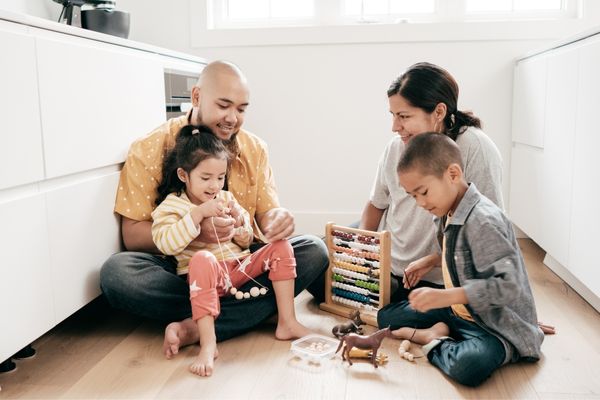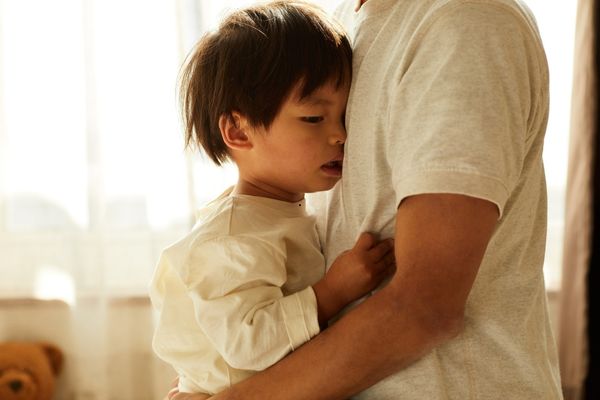What Is Court-Ordered Co-Parenting And How Does It Work?
When separation turns hostile, the emotional fallout often pulls children into the center of the conflict. Heated arguments replace any attempt at calm conversation, and legal disputes become a regular part of life. Eventually, the court intervenes and mandates court-ordered co-parenting, setting a timeline that demands action. At this point, many parents reach out in confusion, unsure of how to proceed or what the process really involves. While the road ahead may feel uncertain, gaining clarity now can help families move forward with greater purpose and stability.

Understanding Co-Parenting Therapy: What It Is and Why It Matters
Court-ordered co-parenting therapy provides structured support when divorced or separated parents are locked in ongoing conflict and their children suffer the emotional consequences. When communication breaks down, even small decisions like school schedules or healthcare choices can become battlegrounds. This consistent tension can create a highly unstable emotional environment for children, who may experience anxiety, guilt, withdrawal, or behavioral outbursts as they try to cope. In many cases, they begin to internalize the conflict, believing they must choose sides or feel responsible for their parents’ stress. Over time, this can damage their sense of safety and identity, especially if they are exposed to verbal attacks, blame-shifting, or emotional manipulation. Children in these situations need protection from adult conflict, not exposure to it.
The purpose of court-ordered therapy in a co-parenting context is to interrupt harmful relational patterns and create a healthier, more functional dynamic between parents. Through therapeutic guidance, each parent learns how to respond rather than react, communicate without triggering hostility, and make decisions in the best interest of the child. The process also promotes emotional accountability, helping each parent recognize how their actions and words directly impact their child’s well-being. Over time, therapy works to reframe parenting as a shared responsibility rather than a competition. As parents begin to cooperate, children benefit from reduced stress, emotional consistency, and the freedom to enjoy both homes without fear or guilt. The long-term effect is not just improved co-parenting but a stronger emotional foundation for the entire family.
What to Expect: How Co-Parenting Therapy Actually Works
In many high-conflict custody disputes, courts issue a directive for court-ordered co-parenting as part of the legal resolution process. Most custody orders are brief and lack specifics, often stating only that co-parenting therapy must begin, with a return court date scheduled within three to six months. Judges typically rely on licensed mental health professionals to determine the appropriate number of sessions, therapeutic structure, and clinical focus needed during that period. This approach ensures that interventions are responsive to each family’s specific needs and aligned with legal expectations.
As a provider of professional psychological services integrated with the justice system, a structured, evidence-based model is used to guide families through the co-parenting therapy process. Services begin with individual intake sessions for each parent, allowing for a confidential review of family history, relationship dynamics, communication challenges, and parenting goals. Clinical assessments and validated scales are used to evaluate each parent’s level of insight, emotional regulation, and readiness to engage in constructive change. This initial phase ensures a comprehensive understanding of the co-parenting relationship before joint sessions begin.
Subsequent sessions focus on equipping parents with the tools and strategies needed to shift from conflict to collaboration. The therapy curriculum includes topics such as understanding shared parenting styles, prioritizing the child’s emotional needs, managing disagreements respectfully, and establishing healthy boundaries. Additional emphasis is placed on effective communication with the co-parent, emotional detachment from the past relationship, and the development of a consistent, functional parenting plan. The objective of court-ordered therapy in this setting is to foster long-term cooperation, reduce legal re-escalation, and create a stable, supportive environment for the child across both households.
Timeline Matters: How Long Does Co-Parenting Therapy Typically Last?
The timeline for court-ordered co-parenting therapy can vary, but most cases follow a structured and clinically guided progression. In the initial phase, parents generally attend weekly sessions over the first two months. Each session lasts approximately one hour and focuses on reducing conflict, strengthening communication, and supporting child-focused cooperation. This consistent engagement helps build the skills necessary for effective co-parenting in high-conflict or legally involved situations.
As progress is observed, session frequency may be adjusted to biweekly or every three weeks, depending on parental participation and measurable improvement. These adjustments are based on clinical observations, responsiveness to therapeutic feedback, and the parents’ ability to implement behavioral changes. Weekly assignments are used to reinforce strategies introduced in session and to evaluate parents’ willingness to apply respectful and productive communication outside of the therapy setting.
Before the court date, a licensed clinician provides a report summarizing participation, progress, and recommendations for ongoing support services. When necessary, this may include suggestions for further support or a formal psychological evaluation to assist the court in understanding deeper emotional or behavioral concerns. These professional insights help inform legal decisions and ensure the child’s long-term well-being remains the central focus.
Court-Ordered Co-Parenting Therapy: Who Covers the Cost?
One of the most frequently asked questions surrounding court-ordered co-parenting therapy is who pays for the sessions. It’s important to understand that this form of therapy is not covered by insurance, even if a policy includes mental health benefits. Because the therapy is court-mandated and not classified as medically necessary treatment, standard insurance plans typically do not apply. Unless the court order specifically outlines a different arrangement (such as a percentage split between parties), both parents are expected to share the cost equally for each session.
Individual sessions, which are part of the assessment process, are the sole financial responsibility of the parent attending. These sessions are billed separately and are not split unless expressly stated in the court’s directive. In cases where co-parenting therapy is pursued voluntarily outside of any legal mandate, there may be limited insurance coverage under a “family therapy” billing code. However, this is not guaranteed and varies by provider and plan.
For clients seeking reimbursement, a detailed superbill is provided after each session, which they may submit directly to their insurance carrier. It is the client’s responsibility to verify whether their insurance will reimburse any portion of the cost. As a practice that specializes in court-integrated psychological services, transparency in billing is a priority to help families plan appropriately during what is often a legally and emotionally complex process.
Clarifying Misconceptions: What Co-Parenting Therapy Is Not
Co-parenting therapy is often misunderstood, and it’s important to clarify its purpose within the legal and clinical framework. This service is not couples counseling, and it is not intended to repair or revisit the romantic relationship between parents. It is also not a platform for processing unresolved emotional pain from the past. The focus remains entirely on the child’s well-being and the development of cooperative parenting practices.
Parents with unresolved anger, grief, or resentment from a past relationship should seek support through individual therapy for healing. Co-parenting therapy does not provide space for exploring personal trauma or rehashing the history of the separation. Instead, it is a goal-oriented process to improve parental communication, reducing conflict, and fostering a stable environment for the child. Clear boundaries are maintained to ensure that the therapeutic work stays aligned with the best interest of the family.

Emotional Impact and Importance for Families
The Impact on Kids: Why Healthy Co-Parenting Is Essential
Research shows children exposed to prolonged post-divorce parental conflict face higher risks of emotional, behavioral, and academic struggles. These effects often extend far beyond childhood, influencing how they manage relationships, trust, and self-worth well into adulthood. Chronic exposure to parental hostility like verbal, passive-aggressive, or emotional, can deeply impact a child’s mental and emotional development over time.
Court-ordered co-parenting therapy plays a crucial role in protecting children from this kind of ongoing stress. By helping parents develop healthier communication and shared parenting strategies, therapy reduces the child’s exposure to conflict and promotes emotional stability across both households. When a child disengages from one parent, reunification counseling may help restore connection and rebuild trust between them. Prioritizing cooperative parenting is not just a legal obligation. It is a critical step toward ensuring a child’s long-term well-being and emotional health.
Let’s Be Honest: Co-Parenting Therapy Isn’t Easy
Co-parenting therapy is challenging, there’s no way around it. The process requires emotional discipline, accountability, and a long-term commitment to change. In most cases, parents arrive with legitimate frustrations about their ex-partner’s past behavior. Whether those frustrations involve broken trust, parenting differences, or unresolved hurt, they often come with strong emotional weight. However, in the context of court-ordered co-parenting, personal grievances are not the focus.
The role of the therapist is not to mediate blame. The legal system recognizes both parents as central figures in the child’s life, regardless of past relationship failures. The emotional attachment a child has to each parent is not based on adult conflicts or personal history. Children do not concern themselves with missed pick-ups, unpaid support, or new romantic partners. They care about love, safety, and connection.
Effective co-parenting means separating adult disputes from parenting and not involving the child in ongoing conflict or tension. It means resisting the urge to criticize, retaliate, or engage in emotional scorekeeping. What children want most is the freedom to maintain strong relationships with both parents without being caught in the middle. The goal of therapy, including more intensive services, is to protect that bond and restore emotional balance.
Ultimately, successful co-parenting requires setting ego aside and prioritizing the child’s emotional health. While not easy, it is one of the most important gifts a parent can give.
Conclusion
Court-ordered co-parenting therapy is a powerful intervention designed to protect children from the damaging effects of parental conflict. Therapy empowers parents to create a more stable and emotionally secure environment. Although the journey requires commitment and emotional resilience, the rewards are profound: healthier communication, stronger, more balanced relationships for the children involved. Families who fully engage in the process often discover that cooperation is not only possible but essential for long-term well-being. This court-mandated path isn’t just about compliance, it’s an opportunity to redefine priorities, and offer children the peace and consistency they deserve.
FAQs
Can grandparents be involved in co-parenting therapy?
No, co-parenting therapy focuses strictly on the two legal parents unless the court orders otherwise.
What happens if one parent refuses to attend sessions?
The therapist will document non-compliance, and the issue can be reported back to the court for enforcement.
Can court-ordered co-parenting therapy be done virtually?
Yes, many therapists offer remote sessions, especially if both parties agree or live far apart.
Does co-parenting therapy include the child?
Typically not. Sessions focus on parental dynamics, though child-involved therapy may be recommended separately.
Can progress in therapy influence custody decisions?
Yes, judges often consider therapist reports and parental progress when making future custody rulings.

